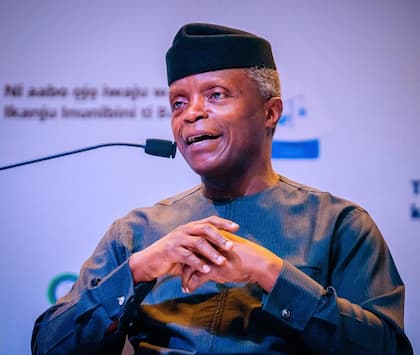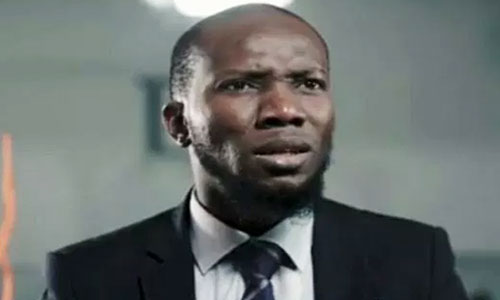
The Vice President, Prof. Yemi Osinbajo, SAN, on Tuesday, tasked the judiciary to devise workable solutions to the problem of delays in the justice delivery system.
Osinbajo, who spoke at the Justice Sector Reform Summit 2022, organised by the Nigerian Bar Association, NBA, said reputation of the nation’s legal system that an appeal court in the United Kingdom described as “catastrophic delays”, must be reversed.
READ ALSO:Electoral Act: Reps bow to Senate on consensus method of candidates’ emergence
He noted that a Justice of the Supreme Court had in an evidence he gave in a court in England, stated that it would take between 30 – 40 years to conclude a case in Nigeria.
“There is also no question that the expeditious delivery of justice cannot wait any longer.
“Everyone knows that these delays take far too long, everyone who has practised in our courts knows that delay as a strategy is one of the weapons that our colleagues deploy repeatedly.
“It is the responsibility of the bar and the bench, but I must say, especially with respect to delays, a lot depends on what counsel will do.
“In criminal cases, a lot depends on when you are able to conclude investigations, witnesses, especially those on the side of the prosecution.
“We cannot make a scapegoat of any arm of the administration of the justice system; it is clear that we all have blame and responsibility here.
“We can do better. We have to do better. Our problems are ours, not for spirits, to solve. They are human problems and I am sure we can solve them.
“We must be intentional in our approach. We must rediscover those attributes that made Nigeria’s judiciary a supplier of high calibre judicial personnel to other countries on the continent”, Osinbajo added.
More so, Osinbajo called for a review of the process for appointment of judges, saying “there shouldn’t be a take a bow and go situation at all”.
“I think it is fair to say that for practically any job at all, no matter how menial or exalted, it is the norm that the applicant will go through some process of evaluation and interview.
“The rigour of such processes usually depends on the enormity of the responsibility the applicant is to bear, and ultimately, the outcome considered reasonable from such an exercise is that it is the best from amongst the applicants that will emerge successful.
“This is why it is quite frankly stunning that the process for evaluation and interview of judges, men and women statutorily empowered to literarily determine the lives and livelihoods of others is one of the least rigorous processes imaginable.
“It shouldn’t be a ‘take a bow’ situation at all. It must be rigorous because the moment the person is appointed into a high office of that sort, they are unleashed as it were on the rest of us.
“The robustness and transparency of the processes in these jurisdictions provide comfort to the candidates of the fairness of the selection process and enables the public to have front-row seat in some of these processes.
“Also, while we ask for the best from our judicial officers, we must equally ensure that the conditions under which they operate are not only befitting but are good enough to attract the best of minds in our profession.
“Judicial remuneration and welfare are critical”, the Vice President stated.
Meanwhile, the Attorney-General of the Federation and Minister of Justice, Mr. Abubakar Malami, SAN, urged the judiciary to stop shrouding its budget in secrecy, insisting that such system would not enable the Federal Government to determine if the N104billion that was allocated to the judiciary would be sufficient or not.
He said there was need for the judiciary to embrace the open government initiative by keeping its financial books open for public scrutiny, adding that the President Muhammadu Buhari-led administration prioritised the financial independence of the judiciary by issuing the Executive Order 10.
On his part, President of the NBA, Mr. Olumide Akpata, maintained that the Nigerian judiciary has the capacity to surmount all the problems bedeviling the justice sector.
He however argued that appointment of judicial officers must be based on merit.
“Our courts must be manned by not just the best hands we can find but also by incorruptible minds”, he added.








